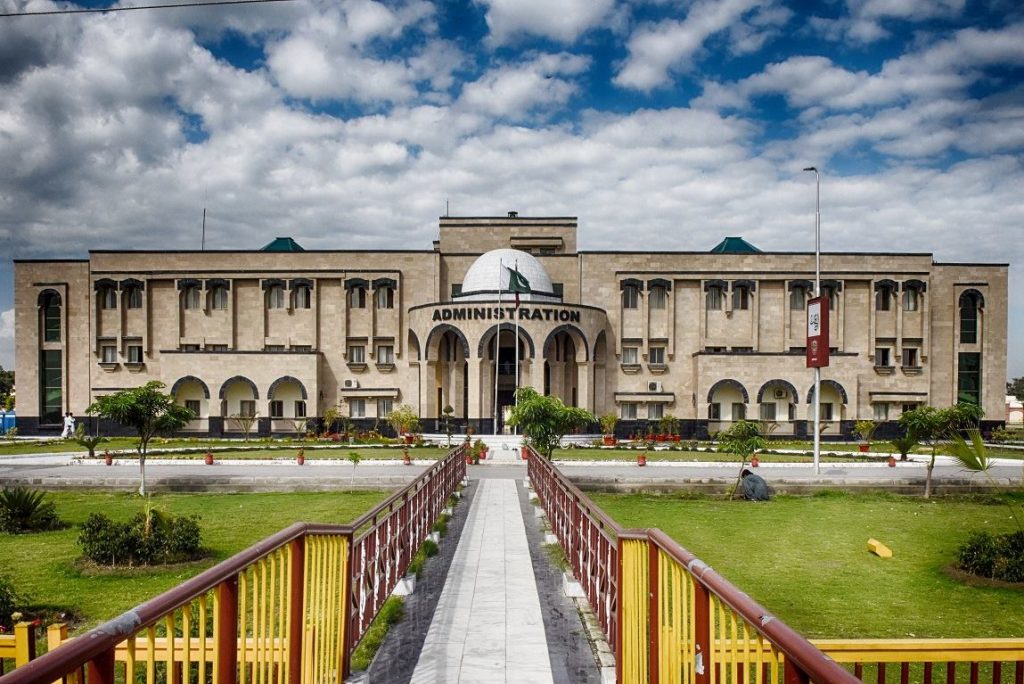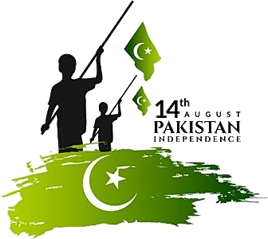
Introduction of the Department
Established in 2009 this nascent Department has shown rapid growth and progress both quantitatively and qualitatively. In a very short span of time students for each program i.e. BS, MA and MPhil and Ph.D have been enrolled. This remarkable development is only by the grace of Almighty ALLAH and then due to the dedication shown by both the faculty and administration of the Department. The department of Political Science provided essential curriculum oriented teaching to its students. Yet it cannot fully cope with the dimension of the knowledge presently imparting to the students. To fill this gap it will never feel hesitation in asking the experts of the field to assist the department with their knowledge. The department of Political Science will establish links with reputed International and National Universities for the exchange of teachers and students in order to expose its students to advanced teaching and research. The Department gears the students towards creating an outstanding learning experience.
The objective is to prepare its graduates for dynamic careers in public and private sectors, including diplomatic service, intergovernmental organizations, and non-governmental organizations, as well as the country’s increasingly vibrant electronic and print media. Political science being a social science is concerned with the theory and practice of politics and the description and analysis of political systems and political behavior. Political scientists “see themselves engaged in revealing the relationships underlying political events and conditions. And from these revelations they attempt to construct general principles about the way the world of politics work. “Political science comprises several subfields including political theory, public policy, national politics, international relations, and comparative politics. Political science is methodologically diverse and appropriates many methods originating in social research. Approaches include positivism, interpretivism, rational choice theory, behaviorism, structuralism, post-structuralism, realism, institutionalism, and pluralism. “As a discipline” political science, possibly like the social sciences as a whole, “lives on the fault line between the ‘two cultures’ in the academy, the sciences and the humanities.” Whereas, classical political philosophy is primarily defined by a concern for Hellenic and Enlightenment thought, political scientists are broadly marked by a greater concern for “modernity” and the contemporary nation state, and as such share a greater deal of terminology with sociologists (e.g. structure and agency). The Department offers an interdisciplinary approach to the study of political science, and its curricula include a wide spectrum of courses; i.e., Theories of Political Science and International Relations, Research Methodology, Economy, Political Philosophy, Muslim World and Its Dynamics, Security and Strategic Studies, Constitution, Foreign Policy Analysis, Diplomacy, International Organizations, International Law, Comparative Politics, and International Political Economy.
Department’s Vision
The vision will be realized by offering students a transformative experience, grounded in experiential education that ignites their passion for learning while opening up for them the endless possibilities around them. We will assist our students in becoming engaged citizens of the world, confident and resourceful people who realize that their knowledge and action can have positive consequences for their own lives and for the lives of others; educate students for a life of fulfillment and accomplishment and create and translate knowledge to meet global and societal needs



